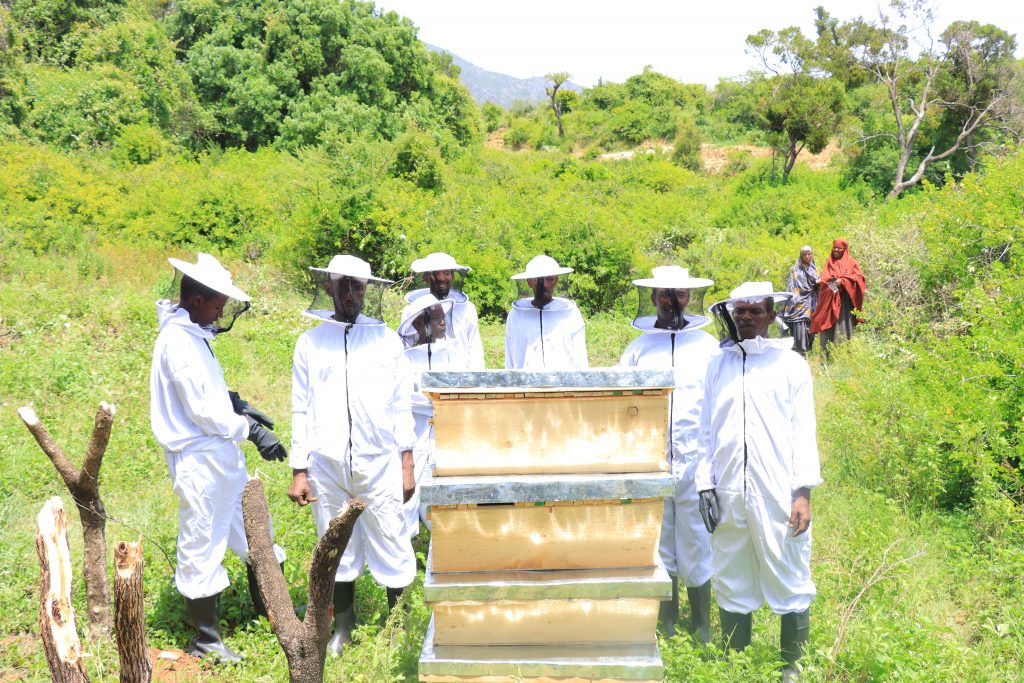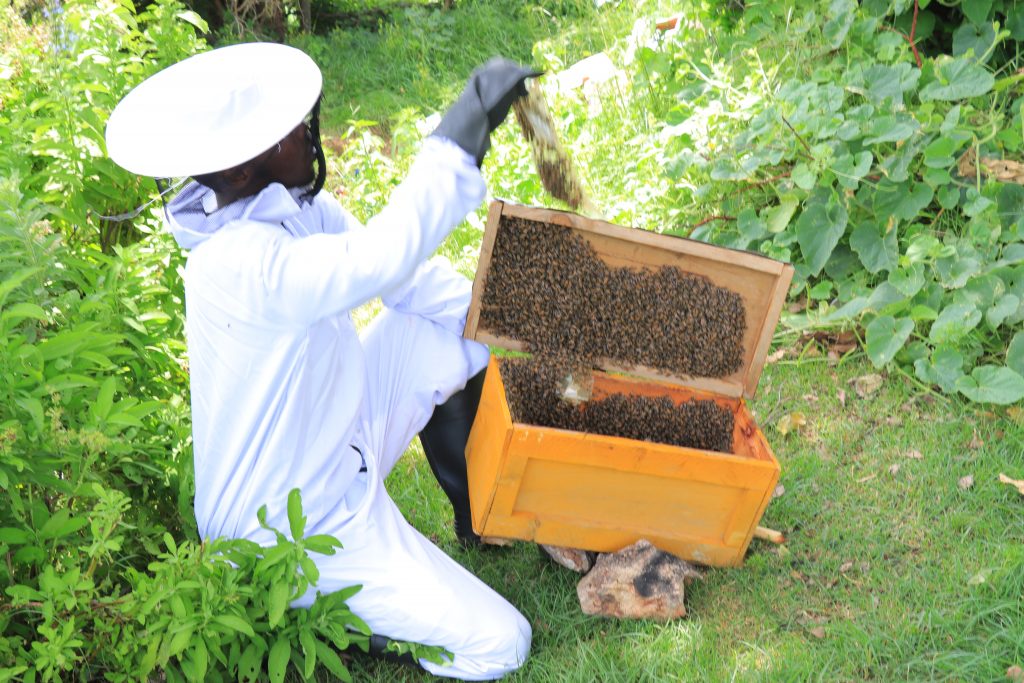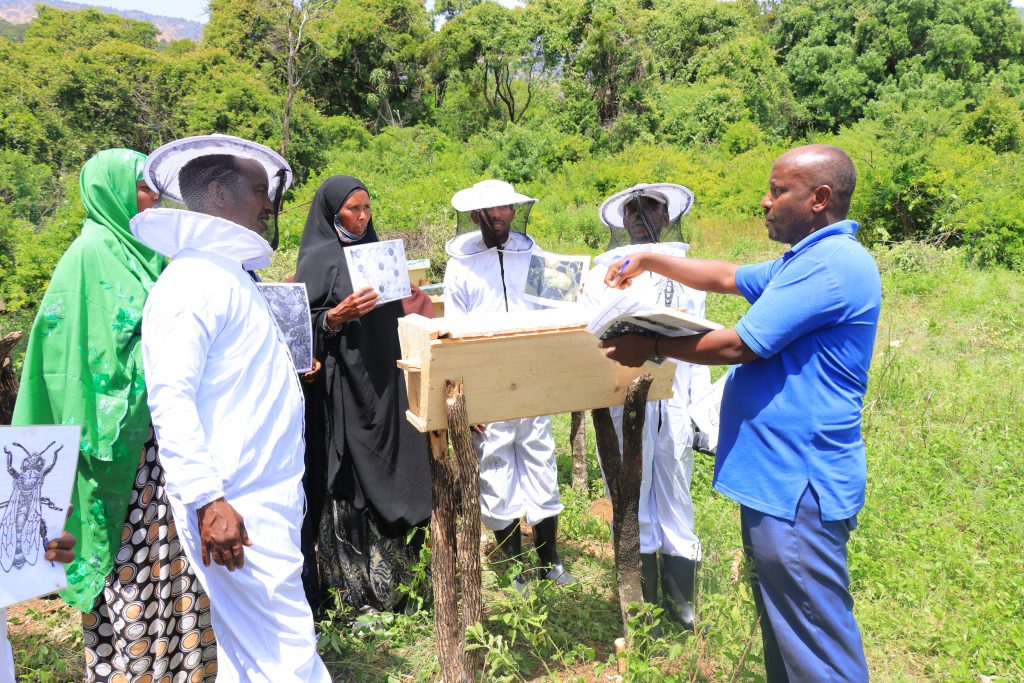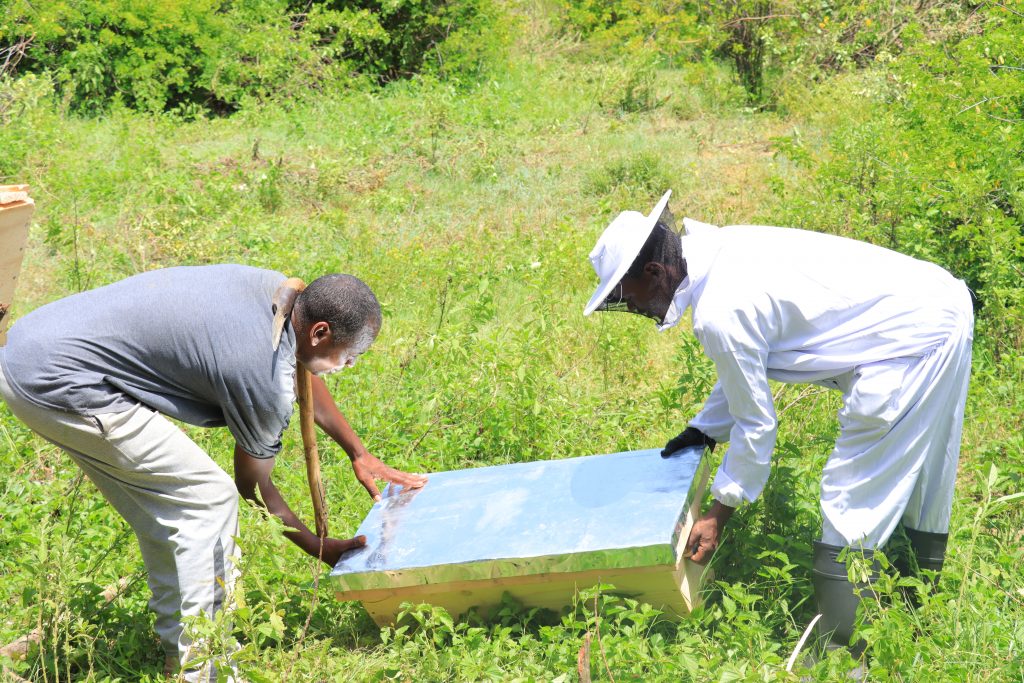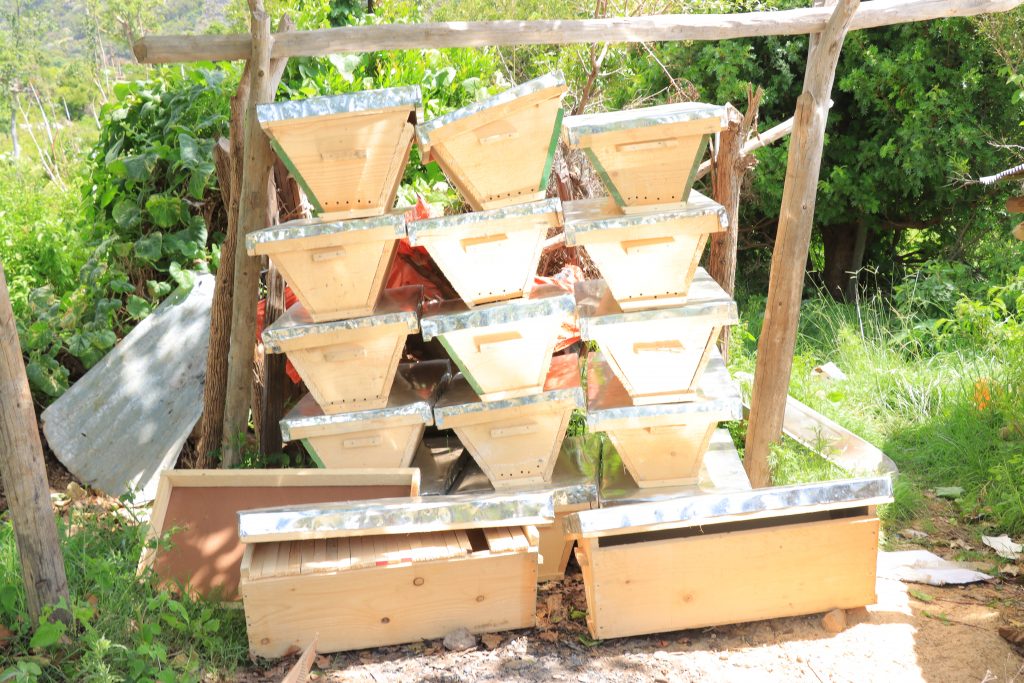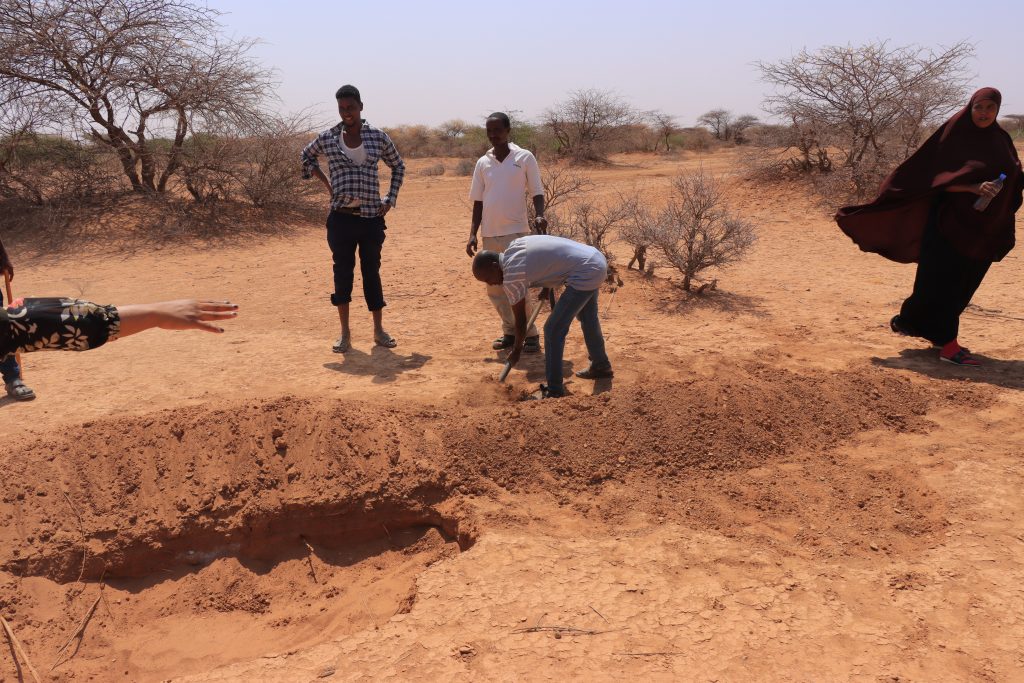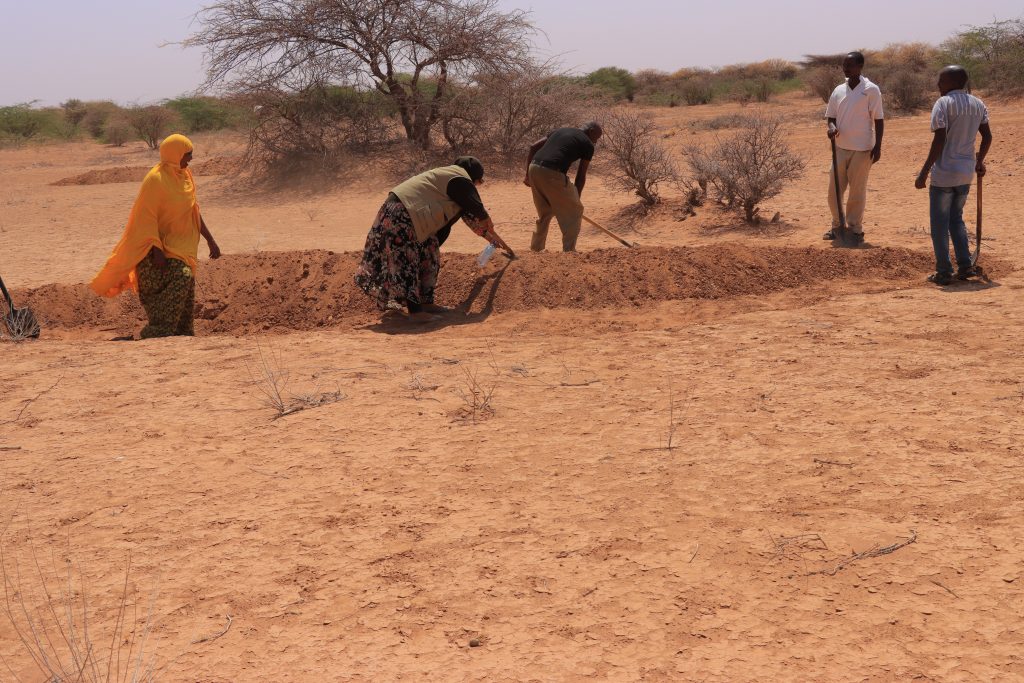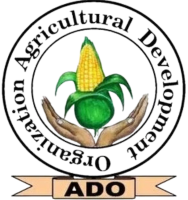Increased climate resilience, food, and livelihood security for agro- pastoralists in Somaliland.
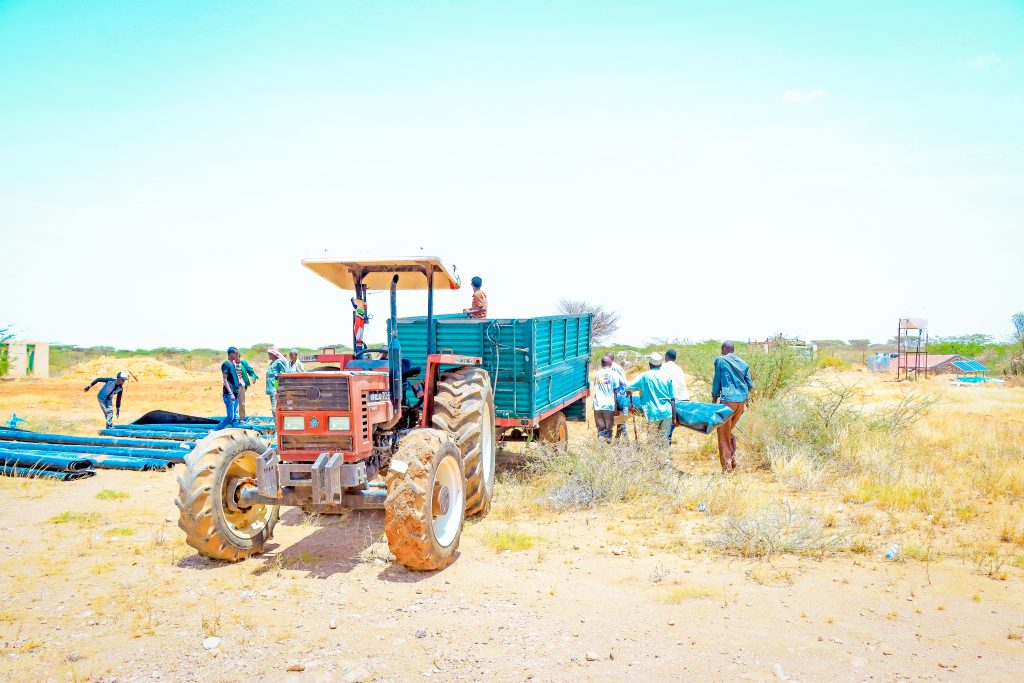
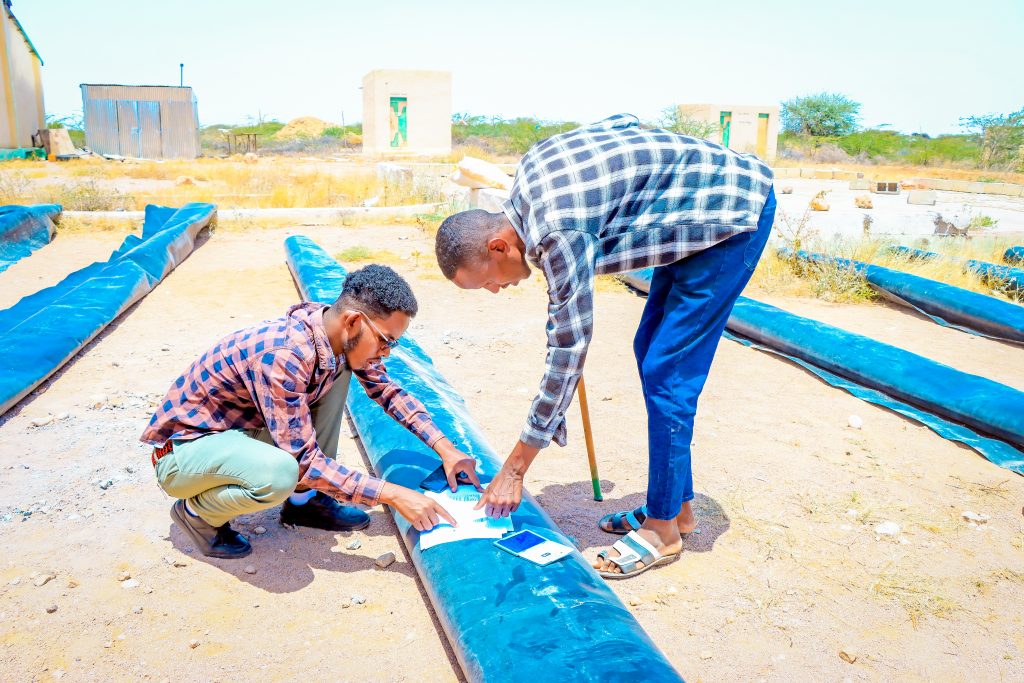
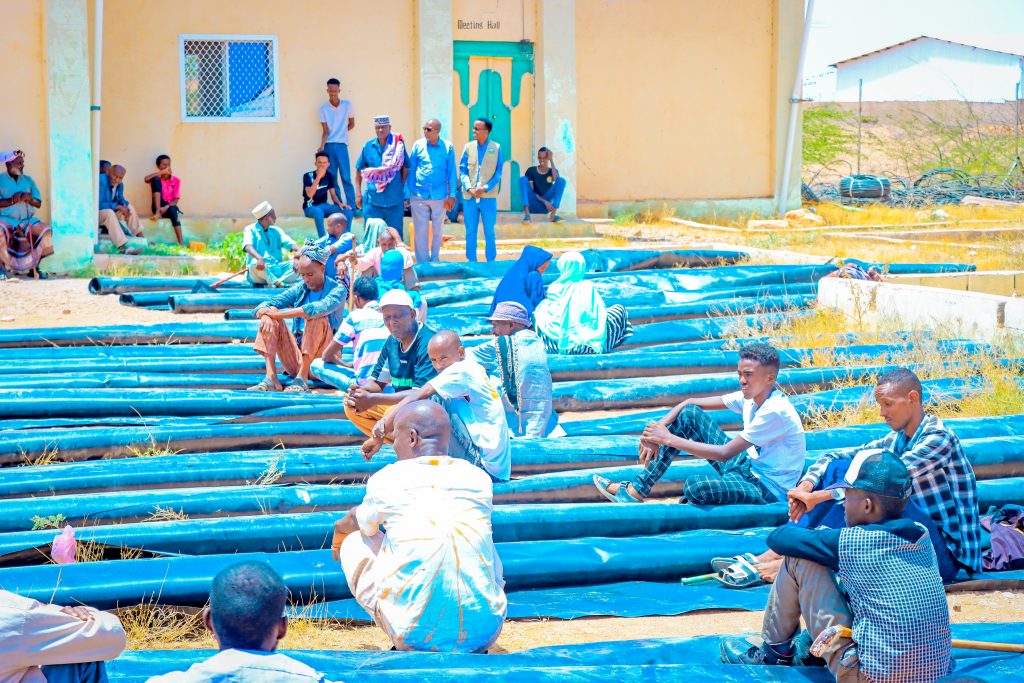
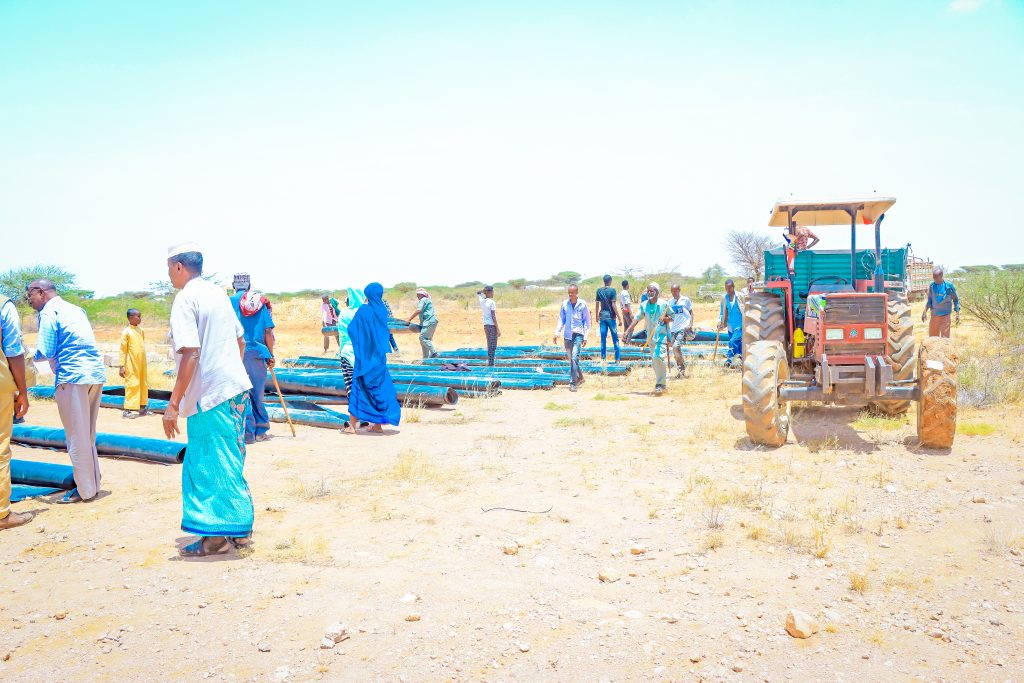
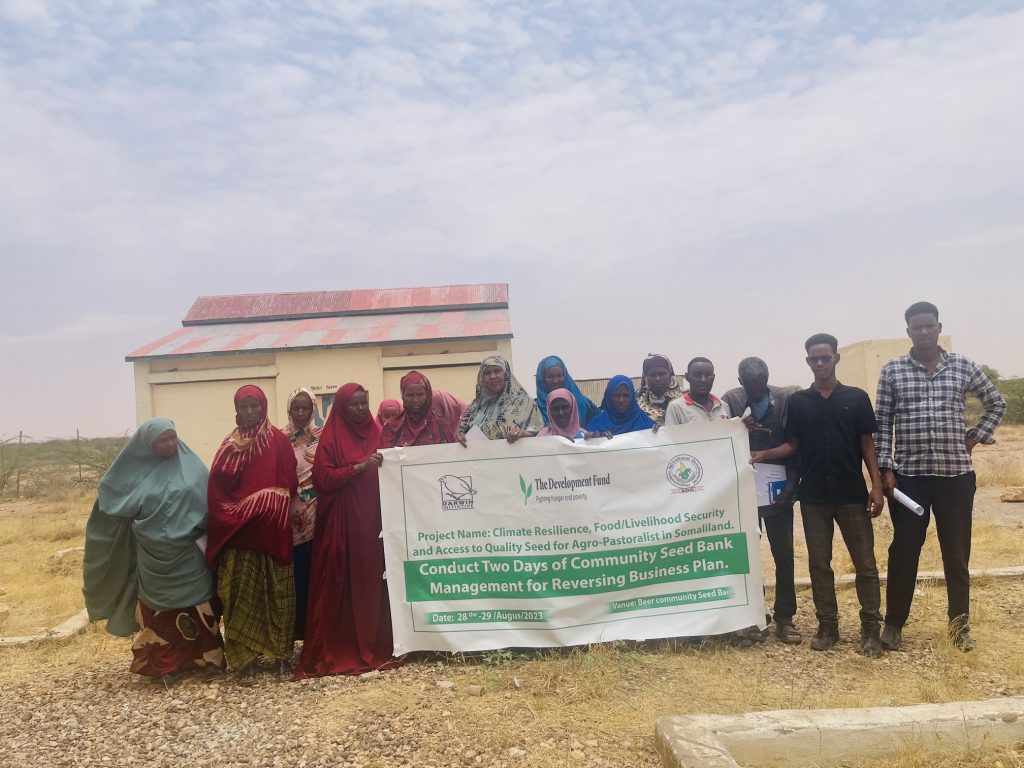
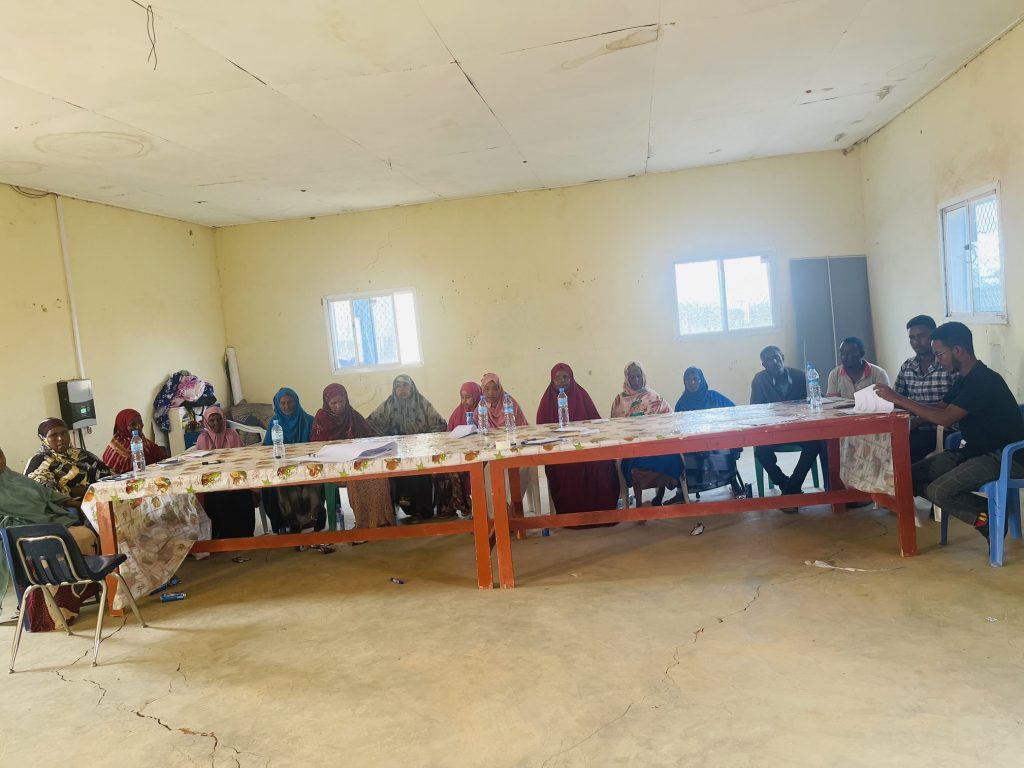
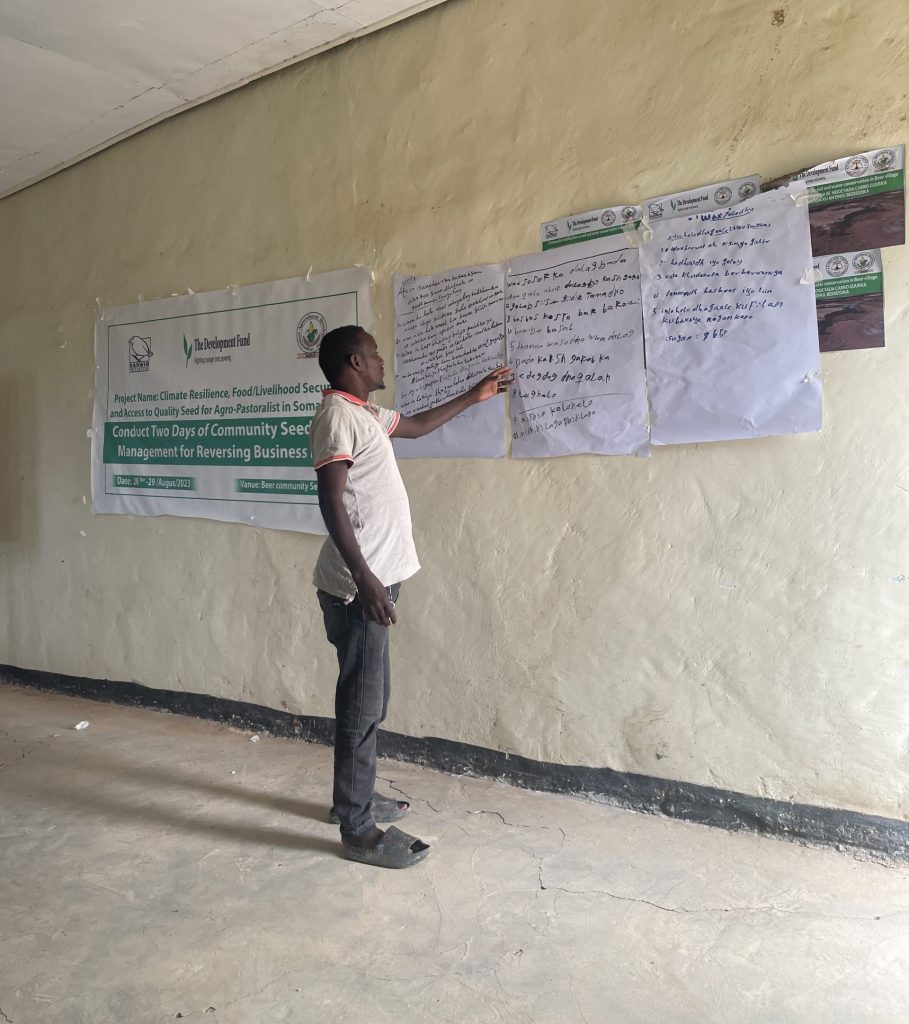
Seed handling and Development Training for CSB management committees and Government extensions in Beer Villages in 15 farmers, CSB and 2 Government extensionists ![]()
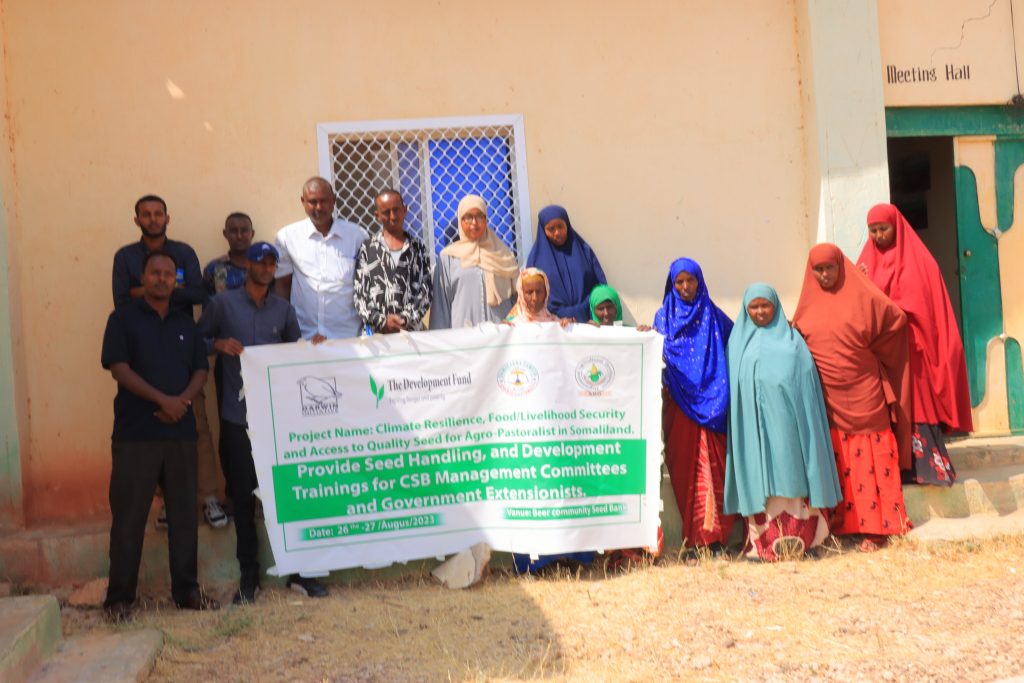
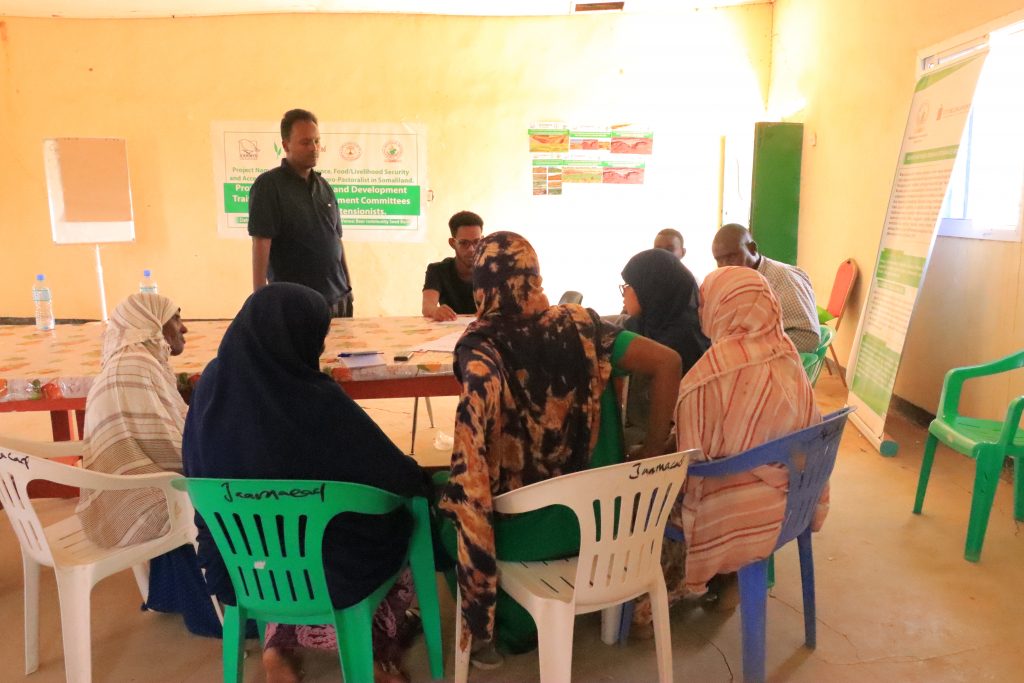
ADO sees the tremendous potential in nurturing and supporting women’s self-help groups. We will continue to strengthen these groups by providing ongoing mentoring, organizing training sessions, and establishing linkages with financial institutions and market opportunities.
Through the power of self-help and community support, we are confident that these women will thrive as influential change-makers and catalysts for sustainable development in Togdheer and Sanaag. ADO remains committed to empowering women in these regions, reinforcing their strengths, and enabling them to create a brighter future for themselves and their communities.
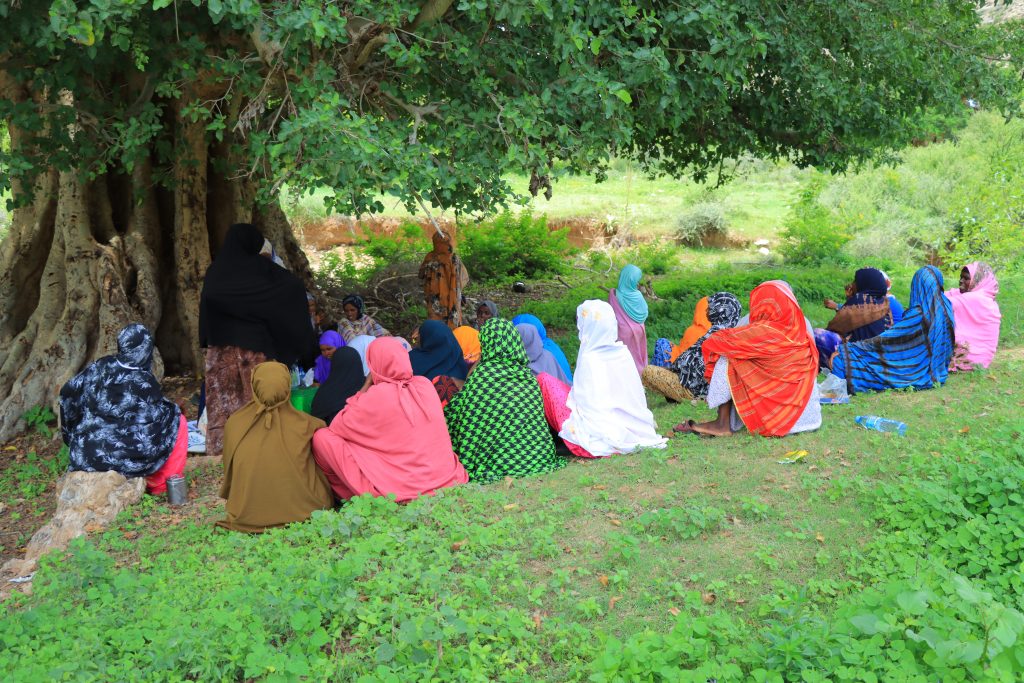
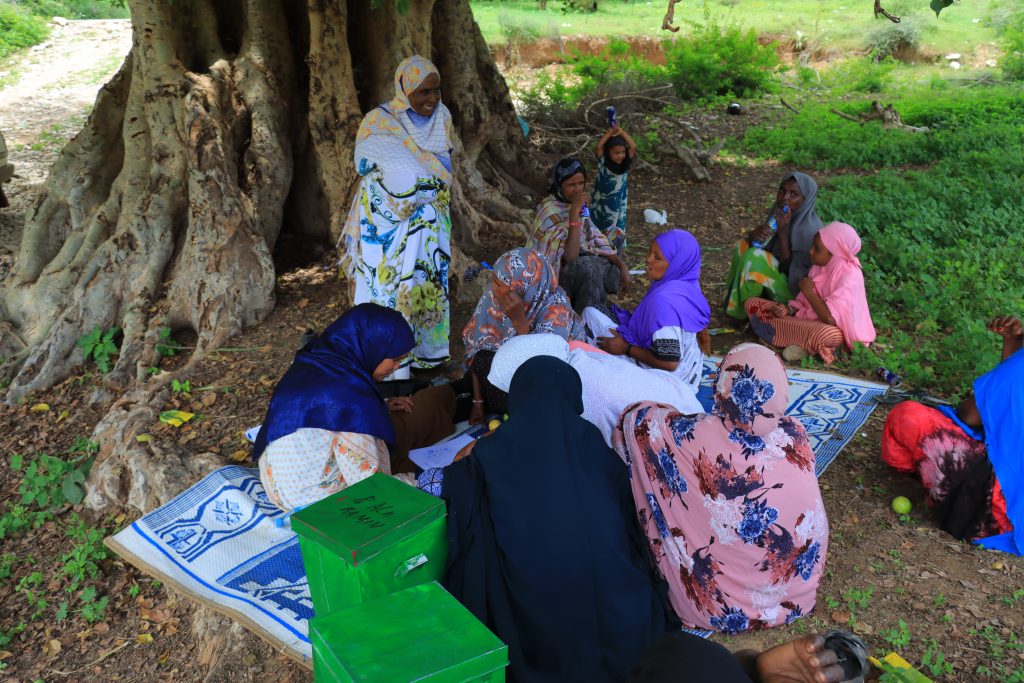
Training and distribution of farmer cooperatives to 20 men and women with bee-keeping practices in the Gaacidh and Xidh Xidh regions of Sanaag ![]()
This initiative aimed to equip farmers with the necessary skills and materials to engage in sustainable beekeeping practices.
ADO conducted 6 days training on Bee-keeping and Honey production. ADO distributed all materials needed for honey production for 20 farmer cooperative members in Gaacidh, Xidhxidh villages and Sanaag region.
Beekeeping plays a vital role in both the agricultural sector and the overall well-being of ecosystems. Through this training, participants gained valuable knowledge about beekeeping techniques, hive management, honey extraction, and the importance of maintaining healthy bee colonies.
By providing beekeeping materials, including hives, protective gear, and tools, ADO enabled farmers to establish their own hives and integrate beekeeping into their agricultural practices. This presents a significant opportunity for farmers to diversify their income sources, enhance crop yields through improved pollination, and contribute to the conservation of local flora and fauna.
The importance of this training and distribution of beekeeping materials cannot be overstated. Firstly, it offers an alternative source of income for farmers, reducing their reliance on traditional agricultural practices and providing them with a resilient and sustainable livelihood option. As beekeeping can be practiced with relatively smaller land sizes, it is particularly beneficial for small-scale farmers and those with limited resources.
Furthermore, the integration of pollinator-friendly practices, such as beekeeping, promotes biodiversity and environmental conservation. Bees play a crucial role in pollinating many food crops, ensuring successful fruit and seed production. By supporting farmers in adopting beekeeping practices, ADO is actively contributing to food security and farming sustainability.
Moreover, the distribution of beekeeping materials and training serves as a means of empowering both men and women farmers in the Gaacidh and Xidh Xidh regions. It provides them with new skills, knowledge, and opportunities to actively participate in income-generating activities and decision-making processes related to their agricultural practices. Promoting gender equality and inclusion is a key aspect of ADO’s mission, and this initiative is a step towards achieving that goal.
ADO recognizes the potential of beekeeping as a tool for rural development, poverty reduction, and environmental conservation. We will continue to support and strengthen farmer cooperatives, providing them with the necessary resources and training to thrive in their beekeeping endeavors.
Through the training and distribution of beekeeping materials, ADO aims to create a sustainable and beneficial relationship between farmers, bees, and the environment. This initiative will contribute to the overall economic growth, improved livelihoods, and conservation of biodiversity in the Gaacidh and Xidh Xidh regions of Sanaag.
